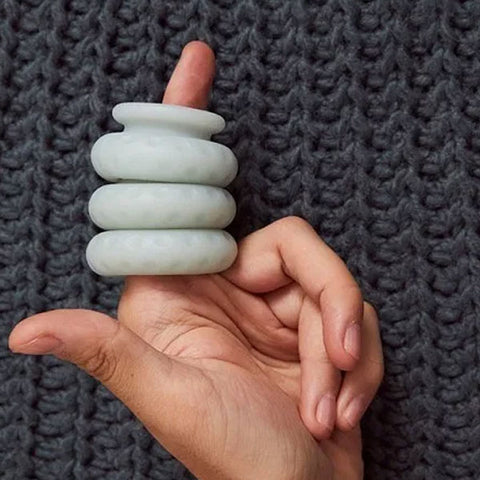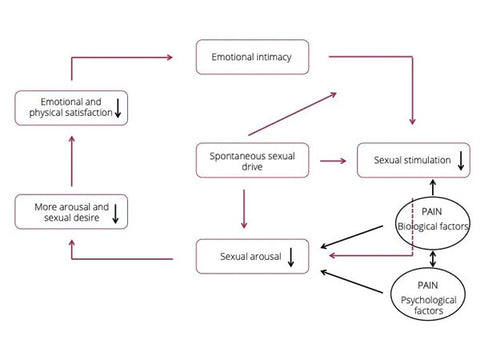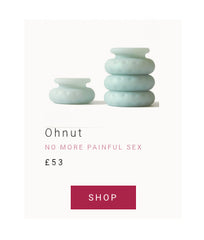Endometriosis, Pain and Sex Life

Talking about a taboo: Endometriosis. How it affects the female sexual response and what we can do.
Endometriosis is a benign disease that affects women during their reproductive life and there is still no concrete explanation of the reasons why some women suffer from endometriosis and others don’t. When the endometrium (internal uterus mucosa layer sensitive to hormonal changes and the one expelled during the period) is located outside from its original place (uterus), this incorrectly developed ectopic tissue is able to settle anywhere in the abdomen, we have endometriosis.
There is an increasing incidence and by today 1 in 10 women worldwide suffer from endometriosis (176 million women). The symptoms are broad (you can find some here) and affect both physically and psychologically: even some cases may not have any symptoms and endometriosis is diagnosed casually when women go under abdominal surgery for other reasons. But in most cases, chronic pain is a symptom.
Adherences can present as implants when they are small, nodules when they are bigger and they could appear as cysts in the ovaries. Unfortunately, control of the disease is currently limited to relieve pain and other symptoms, preventing injuries from progressing and preserving or re-establishing reproductive function, but there is no a definitive cure.

How endometriosis affects sexual life?
It is clear that pain during sex directly affects the quality of life and secondarily sexual interest and sexual desire, in addition it disturbs the orgasmic phase. We must take into account that not all women with endometriosis have dyspareunia (painful sexual intercourse), and that the severity and infiltration of the endometriosis plaques will determine the severity of the dyspareunia.
However, the pain itself reflexively activates the contraction of the pelvic musculature (pelvic floor hypertonia) as an involuntary response to a stressful situation (the same with cervical muscles group), which could worsen or give continuity to the discomfort and genital pelvic pain during and after sexual intercourse. It is known that women with deep infiltrating endometriosis have a sexual function impairment correlated with the overall well‐being decrease. Moreover, the presence of dyspareunia and vaginal endometriotic lesions seems to be involved in sexual dysfunction.
Pain experience is very subjective but it is clear that it interrupts the possibility of living a pleasurable sexual relationship, which is a biological need, as the pain interferes directly and consequently generates an emotional response that affects the entire sexual response. For a better understanding, I’ve modified R. Basson’s description of the circularity of the female sexual response to show you how the pain would affect the whole response.
Female Sexual Response Modified by Pain

________________________________________________________________
You may also like: Endometriosis, firsthand.
________________________________________________________________
Now, once explained how all the female sexual response could be affected, what we do?
How we can improve and minimise the pain to improve the quality of life and of the domains of the sexual response: interest and sexual desire, arousal and orgasm phase?
Studies show that sexual desire, satisfaction during sex and pelvic problems with intercourse are significantly improved after 6 months from laparoscopic excision of DIE combined with post-operative and oral contraceptives therapy. However, not all women have an indication for exploration and surgical treatment so, based on what pain means and generates on the body as a stress agent, I suggest some palliative actions around this altered sexual response as:
+ Good for Endometriosis
- Analgesic (painkillers) only when supervised and indicated by the physician to be taken before intercourse (don’t try to self-medicate!).
- Take care of the vulva and vagina daily. Most women with endometriosis are under hormonal contraceptives treatment, and it is well known that some of then could be related with vulvo-vaginal dryness, so use vulvo-vaginal moisturisers as routine.
- Change the dynamics of sexual relationship; if the penetration means pain, it is important not to centralise the sexual relationship with penetrative activities. You could also try to change your posture or position during sex in order not to trig the pain or use Ohnut and for sure lubricants will help.
- Psychological therapy: yes, maybe you are asking to yourselves why? It is very simple; pain affects the experience on many aspects of life, so talking about them and changing the way people face pain quality will results in a better everyday life. Everything we think and feel has a neurobiochemical translation. Many times therapy helps to learn how to live with pain and from this point having an acceptable quality of life. It will not treat endometriosis but the psycho-emotional consequences of it; this could have a direct impact on the subjective experience of pain.
- Try to work with a pelvic floor specialistt to restore the muscles normal tone and relieve some pain.
Endometriosis is a complex disease and many women suffer in silence, especially when it comes to the sexual consequences. Still too many doctors don’t guide their patients into the journey to have their sexual life back or better. Sharing and talking about it could be helpful for all those women.






